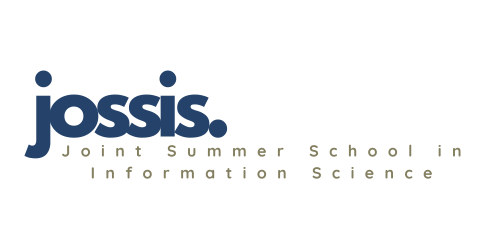This course will be held in 2022.
Info
Dates: 29th August – 9th September 2022
- Lecturer: Elisabeth Oberndorfer
- Course responsibility: Elisabeth Oberndorfer
- Course type: Compulsory Optional Subject (Summer School)
- Related degree levels and programs: BA/MA
- BA/MA in Information Science
- BA/MA in Digital Business Management
- Workload: 120 hours
- Credits: 4 ECTS
- Course abbreviation: ST
Elisabeth Oberndorfer

Synopsis
This elective will help you understand different methods of digital storytelling, forms of presentation and elements of success will enable you to develop their own successful multimedia stories.
Course goal / Guiding idea
Upon successful completion of the course students will be able to:
Knowledge
The course strengthens the students’ knowledge in defining, analyzing and creating multimedia stories. They acquire knowledge in different storytelling techniques and various applications of storytelling
Skills
Students will be able to develop a topic to a complete story and to evaluate various storytelling techniques and use them in writing a story. The course builds capabilities to evaluate and select character types for their appropriateness in a story and to tell stories for online media.
Competencies
The course qualifies students to identify topics suitable for (multimedia) stories, to break down a story into elements and select an appropriate form of presentation for each and to create and combine (multimedia) elements to create a (multimedia) story.
Course content
- Types of storytelling
- Plot development; development of a theme into a story; creating suspense in stories
- Character development; hero – plot – place
- Scenic storytelling
- Visual storytelling; data storytelling
- Interactive storytelling
- Multimedia and cross-media storytelling; scrollytelling
- Storytelling for social media
Learning outcomes
- Broad understanding of storytelling and its applications
- Independent realization of a multimedia story
- Reflective handling and use of learned methods and storytelling techniques
Execution
Contact lessons (60h):
- Theory teaching (everybody)
- Development of a story and story elements (groups)
- Development of a concept for a (multimedia) story
Accompanied self-study (40h):
- Creation of (multimedia) elements for a story
- Production of a (multimedia) a story
Free self-study (20h)
Teaching & Learning methods
- Interactive contact event
- Literature study and reflection
- Content research
- Project work
- Presentation
Proof of performance
- 70% Documentation of story development, concept, content creation and final story
- 30% Presentation
Course readings
Dunham, R. (2020). Multimedia Reporting: How Digital Tools Can Improve Journalism Storytelling. Springer
